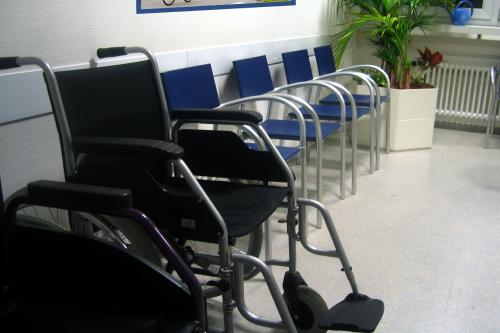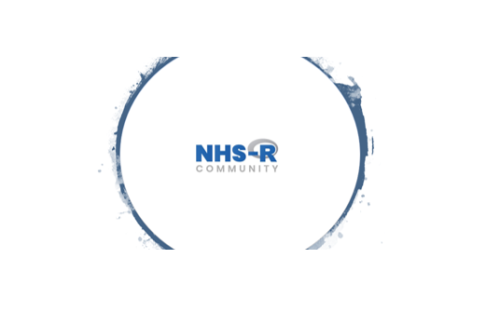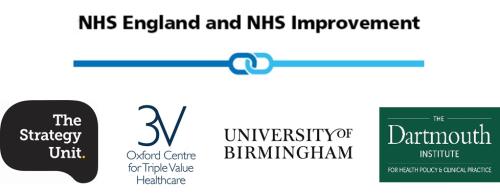
What do we know about the benefits of digital social care records?
The pace of change in the development and use of digital technology is astonishing. The use of such technology has been an essential element in the health and care services response to the COVID-19 pandemic. In many cases, the previously unthinkable became commonplace.

Treating people on waiting lists: who decides what is fair?
Waiting lists for elective care are in the news. The national plan has been issued, with the expectation that lists will continue to rise for some years - and that long waiting will not disappear anytime soon. Addressing this ‘backlog’ will remain a fundamental challenge for some time to come.

The Intellectual Forum: a source of fresh perspectives on decision making
The literature on decision making is like a disaster movie highlights reel. Barely has one calamity registered before another serious misstep takes its place. Case study after case study flashes past, each with its own lessons and warnings.

Advancing the analytical capability of the NHS and its ICS partners
The Strategy Unit were asked by the Strategy and Development Team in the Directorate of the Chief Data and Analytics Officer, NHSE/I, to make recommendations for advancing analytical capability across the health and care workforce.

The impact of social care on demand for urgent hospital care: have we reached a consensus?
The care home COVID crisis and the effects of longstanding staffing and funding shortages has meant that social care has featured heavily in the media over the last 12 months.

Reviewing the evidence on digital inclusion
Digital technology is a significant part of our daily&nb

Evidence review: Early diagnosis of cancer
Detecting cancers early is essential to saving lives and reducing the need for invasive treatments.

How do we develop analysts as leaders? Early thoughts from our ‘leadership for analysts’ programme
“What is an analyst?”

How can analysis help clinicians improve services? Interview with Dr Anna Lock
Dr Anna Lock, Justine Wiltshire and Lucy Hawkins reflect on the Strategy Unit's innovative end of life care analysis. How can this work help clinicians to improve services?

A framework for understanding policy change
A new policy, strategic direction or major programme is announced.

Localism and the NHS: a case in four stories
In this blog, Fraser Battye makes the case for localism in the NHS. He tells four short stories. He suggests that these stories highlight an opportunity as the NHS enters a period of reform.

Learning from lockdown: support for people experiencing homelessness
There are few clearer measures of societal health than homelessness.

Is ‘Integrating Care’ bold enough?
In this blog, Fraser Battye leaves the Strategy Unit’s usual careful and empirical view of the world. He reflects on NHS England and Improvement’s ‘Integrating Care’ paper from the perspective of wider ideological and societal trends. In doing so, he suggests that there is scope for bolder reform – and that localism is the way to go.

What might ‘Integrating Care’ mean for analysts?
In this blog, Fraser Battye looks at NHS England/Improvement’s ‘Integrating Care’ paper. While not looking forward to another NHS re-organisation, he sees a lot that analysts will like. Fraser also notes the potential advantage that the Decision Support Unit model gives systems in the Midlands. What can analysts do to seize these opportunities?

A learning NHS and ‘black box’ analysis aren’t compatible
Data analysis presents a limitless opportunity to improve decision making within the NHS.

Making sense of evidence
It's time to celebrate World Evidence-Based Healthcare (EBHC) Day. In a world dominated by COVID-19 and the associated infodemic, this day arguably has more resonance. Closer to home, EBHC Day also coincides with our Insight 2020 festival and the launch of the Midlands Decision Support network. What better opportunity to ask, 'what does evidence-informed decision making actually mean'?

Bringing NHS analytics into the 21st Century
A marriage usually needs (at least): a matchmaker, two entities, a (little) money, a proposal and a home.
How can Integrated Care Systems collect and use more ‘person-centred intelligence’?
Working with our partners
Outcomes based commissioning: A framework for local decision making
This local decision-making framework aims to empower systems as they look to design new contracting approaches aimed at improving outcomes.

Midlands Population Health Management Academy
The Midlands Population Health Management Academy was part of a programme of support, commissioned by NHS